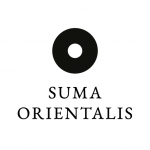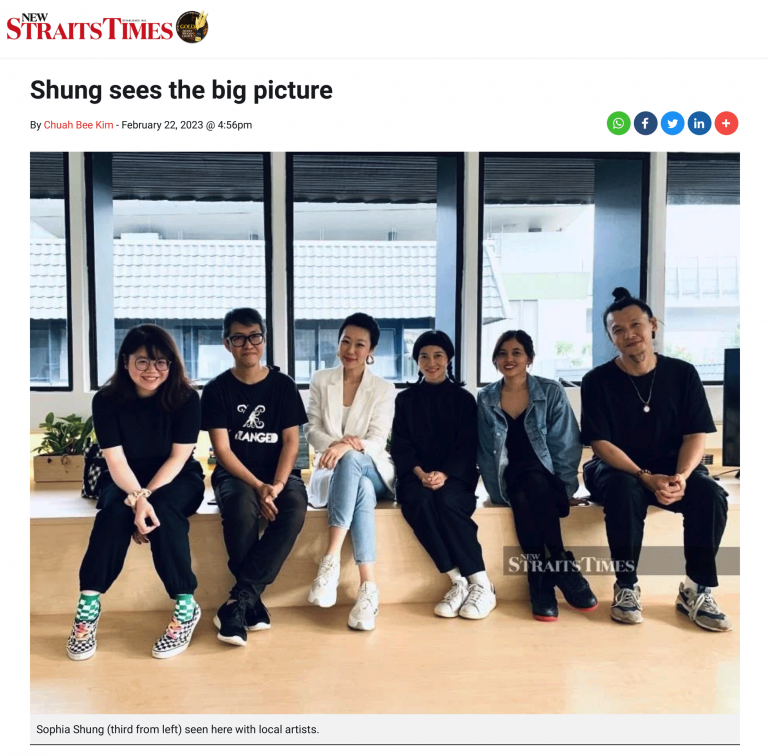NOT only does she have one of the rarest surnames in Peninsular Malaysia, Sophia Shung also serves a very niche group of investors. She is by profession an art appraiser, believed to be the only one in the country.
Born and bred in Alor Star, Kedah, Shung is the founder and director of Suma Orientalis Fine Art, a contemporary art gallery, set up in 2017. She is also a cultural strategist and art consultant.
She will evaluate the worth of an old painting, vintage toy or even stamp collection, and this will help her clients decide whether they want to sell the items or whether it was worthwhile to have them restored.
Shung graduated from Universiti Sains Malaysia in 2008, where she had majored in Persuasive Communications. She is also a Certified Financial Planner and had specialised in risk reduction and corporate insurance planning, namely, in engineering, manufacturing, architecture and property development.
“I was tasked to inventorise some art pieces and vintage stamps for a client who wanted to insure his collections, and the company that I was with at the time had used the property valuation method to value the items, which I felt was not right.
“So, I decided to sign up for a diploma course at the Missouri Auction School in the United States. Upon completion, I registered with the International Society of Appraisers. After I came back, I set up Suma Orientalis,” she said.
Shung is also an art consultant who has worked with art patrons who are individuals and international corporations.
She also debunked the myth that artists only profit from their paintings after death, as Shung said in jest that she is acquainted with many well-to-do, living artists.
She recently also launched her podcasts called The Sophia Shung Show where she talks about art and culture.
Shung is also one of the committee members in Penang Chinese Chamber of Commerce, and was a city councillor in the Penang Island City Council from 2017 to 2020.
At the national level, she currently serves in the committee of National Harmony and Government Affairs in the Associated Chinese Chambers of Commerce and Industry of Malaysia (ACCCIM).
On how the government can further boost the local arts, cultural and heritage scene, Shung proposed introducing tax relief on cultural spending as this would attract more people to spend money on tickets to watch a cultural performance or art exhibition featuring the works of local talents.
“This will encourage gallery operators and any relevant organisations to channel their energy and creativity toward getting a bigger audience instead of fighting for a bigger allocation of the budget. Imagine getting an allocation of say, RM50,000 but that will not last very long as they need to pay the staff salary and rental, among other things. Art galleries normally do not charge admission tickets.
“By introducing tax relief for a piece of art or to go watch a local play, for instance, would encourage the public to spend money to enjoy the incentive and at the same time, this supports the local arts and cultural entrepreneurs.
“Art entrepreneurs are not able to sell well because we have yet to cultivate this culture in our lifestyle yet, unlike Thailand, where art is now thriving for local artists and art entrepreneurs.
“Tax relief on cultural spending will create a win-win situation as it encourages organic spending by the public to enjoy arts — especially the M40 — and boost the income of local artists and art entrepreneurs,” she said, adding that this would help the entire ecosystem such as talent managers, frame makers, writers, art handlers and many more.
On another matter, Shung said that in 2022 Budget, the government had allocated RM50 million for the arts and culture industry.
“Agencies such as the Cultural Economy Development Agency, the National Film Development Corporation Malaysia and MyCreative Ventures reportedly received RM188 million to continue several recovery initiatives,” according to the official announcement of the Ministry of Communications and Multimedia.
“There were tax deductions for sponsorship of art, cultural and heritage events, and grants were given to fund artists’ research and art organisations’ operation costs, among others,” she said.
Shung said she hopes that 2023 Budget, which will be presented again on Feb 24, will also have more government incentives on the tech-driven creative industry and for the running of private museums, as of late, besides the personal income tax relief on cultural spending.
*The writer was a journalist with the New Straits Times before joining a Fortune Global 500 real estate company. This article is a collaboration between the New Straits Times and Tradeview, the author of ‘Once Upon A Time In Bursa’.
Media Features

